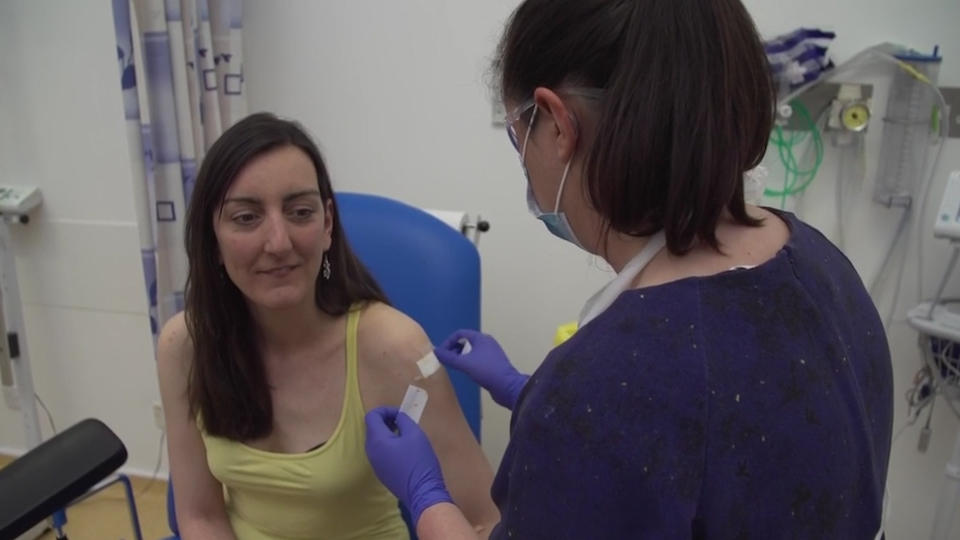Coronavirus vaccine trial participant says 'I'm fine' after waking up to fake article on her own death
A microbiologist who was one of the first people to be injected as part of UK human trials for a coronavirus vaccine has said she is “doing fine” after a fake article about her death was circulated on social media.
The article claimed that Elisa Granato, who took part in the trial in Oxford on Thursday, had died after taking the vaccine.
But both she and the government have since said the article was fake.
Writing on Twitter before making her account private, Dr Granato said: “Nothing like waking up to a fake article on your death … I’m doing fine everyone.”

News circulating on social media that the first volunteer in a UK #coronavirus vaccine trial has died is completely untrue.
Before sharing unsubstantiated claims online, use the SHARE checklist to help stop the spread of harmful content:
▶️ https://t.co/9rAFQES8Xm pic.twitter.com/HgG4cHnLFQ— Department of Health and Social Care (@DHSCgovuk) April 26, 2020
On Sunday afternoon, the Department of Health and Social Care tweeted: “News circulating on social media that the first volunteer in a UK coronavirus vaccine trial has died is completely untrue.
“Before sharing unsubstantiated claims online, use the Share checklist to help stop the spread of harmful content.”
Latest coronavirus news, updates and advice
Live: Follow all the latest updates from the UK and around the world
Fact-checker: The number of COVID-19 cases in your local area
6 charts and maps that explain how coronavirus is spreading
Dr Granato was one of two people to take part in the trial, and said she was “excited” to support the efforts by volunteering.
The Oxford Vaccine Group hopes to have at least a million doses of its candidate for a COVID-19 vaccine ready in September.
Earlier this month, the government relaunched its Don’t Feed The Beast public information campaign to encourage people to question what they read online.
It includes the Share checklist, which features basic advice such as checking the source of a story and analysing the facts before sharing.
A Rapid Response Unit is tackling a range of harmful narratives online and co-ordinating with departments across government to deploy the appropriate response, which can include a direct rebuttal on social media, working with platforms to remove harmful content and ensuring public health campaigns are promoted through reliable sources.
The unit is one of the teams feeding into the wider Counter Disinformation Cell led by the Department for Digital, Culture, Media and Sport, made up of experts from across government and in the tech sector.
The cell is engaging with social media platforms, and with disinformation specialists from civil society and academia, to establish a comprehensive overview of the extent, scope and impact of disinformation related to coronavirus.

 Yahoo News
Yahoo News 

